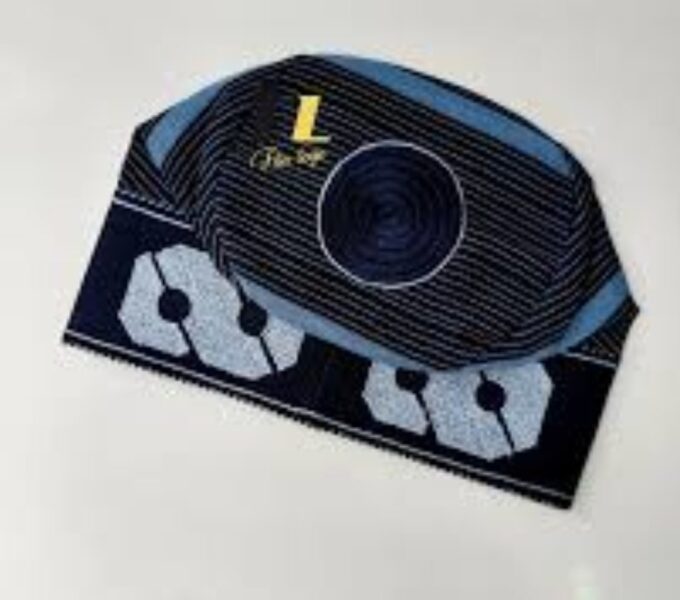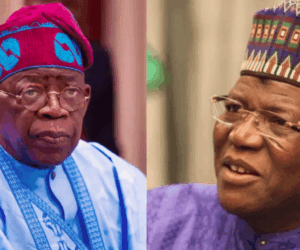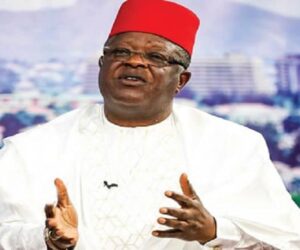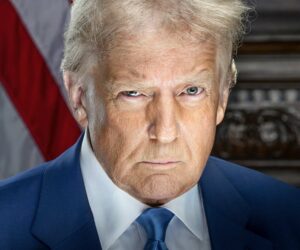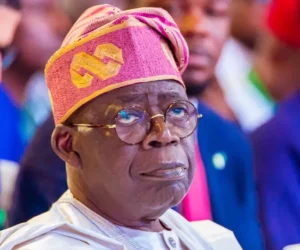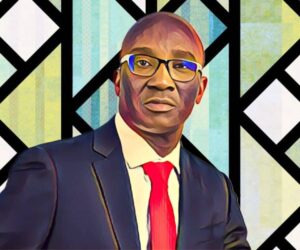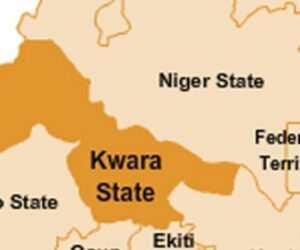Overtime politicians in Nigeria have made their marks in various areas. They have shown that it is not just about delivering on promises made during campaigns, but that style also matters. Sometimes, the actor may not even be aware of the influence his style carries until it is adopted by supporters and other people who may be seeking one form of favour or the other. In recent times, the cap worn by President Bola Ahmed Tinubu appears to have developed a life of its own travelling across cultures and states alike. Aside politicians, some ordinary citizens are also seen adorning the cap. Governor of Edo State, Senator Monday Okpebholo, on Monday, generated controversy when he issued a directive to members of his cabinet to start adorning President Bola Ahmed Tinubu’s cap at every meeting with him.
President Bola Ahmed Tinubu has since his days as governor of Lagos State, come to be identified with a particular kind of design on his cap which at first glance seems like the figure ‘8’ but at a close range appears like a broken chain.
It has become part of his identity that anywhere the cap with the design is seen, it immediately evokes the image of the president.
SPONSOR AD
Governor Opkebholo, who won his election last year has been full of gratitude to the president for the support he gave him in defeating the candidate of the then ruling party Peoples Democratic Party (PDP) in the state.
He explained that adorning the same style of cap with the president is a means by which the members of his cabinet would show their support to the number citizen.
“I will not forgive any commissioner that is not wearing this cap. In our exco meetings, if you are not wearing a suit and you are coming to the meeting without this Asiwaju cap, you will go back, “he said.
Since the directive was reported, many have flayed the Edo State governor, saying it is sycophantic for the governor to say so.
The Publicity Secretary of the Peoples Democratic Party (PDP) in Edo State, Dan Osa-Ogbegie, described the governor’s directive as proof that he was installed.
“Our people have insisted, loudly and consistently, that they voted for Asue Ighodalo. Monday Okpebholo himself has now given public weight to that sentiment. He owes his seat not to Edo, but to the man whose cap he compels others to wear, “he said.
The Asiwaju cap
What is now known as the Asiwaju cap according to those in the trade is actually the traditional Yoruba cap which at a time was made popular by the Afenifere, a Yoruba socio-cultural organisation.
Tinubu, according to many, however added a touch to it by designing it with a particular logo on both sides.
The design is unique as people do not recall seeing anyone displaying it before Tinubu and when he advanced in politics, his supporters began to imitate him which made the design popular.
Publicity Secretary of All Progressives Congress (APC), Mogaji Seye Oladejo, in a chat with Weekend Trust said the adornment of President Bola Tinubu signature cap is voluntary and at no time did the president issue a directive that his supporters must adorn the cap.
“I’m not too sure Asiwaju had a conversation about what it symbolises but we can only guess”, he said.
I am not aware of any directive but people on their own voluntarily decided to underscore their loyalty and commitment to him by wearing a replica of his cap.
Our correspondents learnt that though the president has not openly asked anyone to show solidarity by wearing the cap, some say the fact that he has not spoken against it shows that he doesn’t mind.
“Ordinarily, most political leaders would be happy seeing their styles being copied so it is possible the president is happy about it,” said an admirer who does not want to be named.
Oladejo explained that those who don’t wear it are not seen as less loyal because according to him loyalty goes beyond just wearing cap.
“It’s fundamental, in-depth and more peculiar to be loyal beyond the wearing of a cap. You can actually wear the cap and you are not committed. So, you have to be loyal in words, in deeds, in tongues and in actions,” he stated.
What the cap symbolises
The origin of the design is said to date back to when Tinubu was the governor of Lagos State. It is of Yoruba origin.
Said Oladejo, “Every major tribe in Nigeria has their kind of cap. The Yoruba are known for Asiwaju’s kind of cap, nice designs, vintage caps. The Igbos have their red cap, the Hausa also have their own kind of cap. The Tiv have their own cap and the Ibos have their own. Those from the South-South are known for their caps as well. So it is traditional, it’s cultural, it’s vintage. It’s visible.
A close associate explained that Tinubu started using the design as a way of sending a message that whether the opposition likes it or not he was going to spend two terms back then as governor of Lagos State.
He said, “When you look at the symbol itself it’s figure 8 but the 8 is not standing straight. It’s standing sideways but it symbolises figure 8. It can also be termed to be an uncommon chain of development or forward-looking progressive politics or an aspiration that cannot be broken no matter the intrigues or conspiracies.
“And at a time like this too the symbol of that cap would also see us through 2027 which is looking very bright everyday courtesy of the president’s landmark achievements under the Renewed Hope Agenda and the opposition in disarray,” he said.
Oladejo further stated that everybody has his peculiar style of politics and nobody has the moral right to be critical of the way anyone has chosen to play his politics.
“If you call it hero worship so be it. But the hero is not the one demanding to be worshipped now. You can see the difference. So if you have chosen to worship the hero, why not? At least I am not aware of any Executive Order that every follower of Asiwaju should wear his cap. But Asiwaju would rather want you to be committed beyond just wearing the cap”, he said.
Other parts of the country
Our correspondents observe that politicians from other parts of country outside the South West are also wearing the cap or wearing other caps with the insignia to show their support for the president.
In the North, the former national chairman of the All Progressives Congress (APC) Abdullahi Umar Ganduje is particularly known to carry the design on his cap most of the time even when the cap is different from that of the Yoruba. The pattern is weaved on it.
Governor of Niger State, Mohammed Umar Bago, is also known to be fond of wearing caps with the design.
Our correspondents observed that it is not openly sold on the streets in the other parts of the country outside the South West.
“Politicians request for it when they have a function and wear it openly, especially at political events,” said Usman Yusuf, a trader in Abuja.
Politicians of old have used caps as symbols of identity but they were mainly drawn from their cultural backgrounds.
Leaders like Zanna Bukar Dapcharima; Obafemi Awolowo; Nnamdi Azikiwe; Aminu Kano; Waziri Ibrahim; Shehu Shagari and Solomon Lar made political statements with their peculiar caps.
The cap which was worn by Shagari is the typical Hausa cap, but has no sign or logo on it. During the administration of Goodluck Jonathan, the bowler hat of the Niger Delta became popular as his supporters took to wearing it.
This is the first time, however, that it is not just about the cap, but an individual’s symbol is been weaved onto caps from other regions.
Another cap that comes close to that is the Kwankwasiya cap, made popular by former governor of Kano State, Rabiu Musa Kwankwaso.
His supporters always put it on to show their solidarity. It started when he was governor and has continued till date.
Cap makers take advantage
Weekend Trust reports that some stylists in Lagos State have taken advantage of the popularity of the Tinubu signature cap to expand their frontiers as more people patronize them.
A fashion designer in Ikeja, Ridwan Abdullahi, in a chat with our correspondent explained that the local tailors use embroidery designs to make the cap.
He said he gets orders from time to time from APC members and loyalists of Asiwaju, who come as individuals or in groups requesting them to make the caps.
According to him, those who wear the caps are mainly youths and middle-aged people who are members of the party and subscribe to the president’s political ideology.
He said, “I can tell you that most tailors in Lagos have added the cap to the list of their designs. Many of us now make money from it. For instance, I get orders from individuals and bulk orders as well. Sometimes, a group of three, four or five approach me to make the cap for them.
“Each embroidery design costs N10,000 per cap. People mostly use the traditional Aso Oke for the cap while some people use velvet depending on what they want”.
He stated that a cap could cost N15,000, if he is the one to buy the material for the customer.
“We are very hopeful that with 2027 approaching, we would get more customers asking us to make the cap for them. But this has become the in-thing among politicians in the state,” he said.
Analyst speaks
A political analyst, Dr. Kabiru Sufi, has described the rising trend of Nigerian politicians embracing the President Bola Ahmed Tinubu’s signature cap symbol— often referred to as the Tinubu Curve — as more of a political identity movement. In an interview with Weekend Trust, Dr. Sufi said the “cap symbol,” now widely used by Tinubu’s loyalists and members of the All Progressives Congress (APC), has evolved into a mark of allegiance to the president rather than a tool for political mobilisation.
“He has identified himself with the use of the cap with the infinity symbol. It has been with him for quite a long time. But this time around, coming into the presidential scene, it has been glorified,” Sufi explained.
According to him, the symbolism gained significant traction during Tinubu’s 2023 presidential campaign, becoming popularised by two northern politicians like former Kano State governor, Abdullahi Umar Ganduje, and Ibrahim Masari, both early loyalists of the Tinubu political movement.
“I think these two started the usage of the cap as an identity of the Tinubu movement even before he clinched the presidential ticket. When he did that, it started gaining more popularity,” he said.
Sufi noted that after Tinubu’s inauguration as president, Ganduje’s appointment as APC National Chairman further amplified the trend, especially among party loyalists seeking to associate themselves with the president.
However, Dr. Sufi said while the trend may serve as a symbol of solidarity and political branding, it has no tangible effect on Nigeria’s political direction or governance outcomes.
“I don’t think there is any impact, except that it serves as an identity and gives a kind of clout to the Tinubu movement,” he said.
The analyst likened the Tinubu Curve to past political symbols used by Nigerian politicians and movements to express loyalty, such as the “Red Cup” and the “Black Cap” eras associated with other political figures.
He added that the more Tinubu consolidates power as president, the more politicians are likely to adopt the symbol as a way to align themselves with his administration and political structure.

